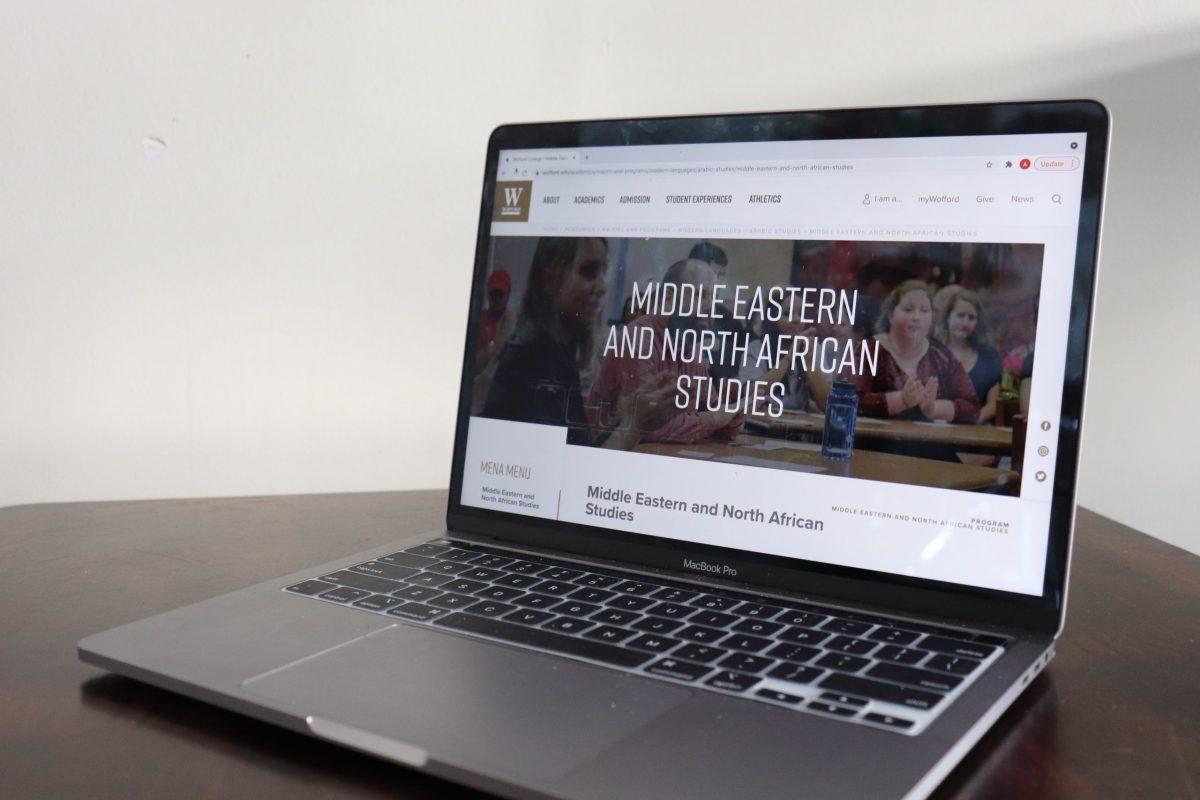Highlighting the overlooked programs at Wofford
The Middle Eastern and North African (MENA) Program and Arabic Minor at Wofford tend to be overshadowed by other academic programs at Wofford. Nonetheless, students in these programs gain a fundamental understanding of the region through a well-thought, interdisciplinary agenda.
Professors Courtney and Phillip Dorroll began teaching at Wofford College nine years ago. Courtney Dorroll’s PhD in Middle Eastern and North African studies was a catalyst for the creation of Wofford’s MENA program. Classes related to the region were already offered, making the program’s creation relatively easy.
Both Dorrolls work as MENA Program Coordinators. Courtney Dorroll oversees the program and advises students with their capstones. Phillip Dorroll meets with newly declared students and primarily professes in the Religion department, focusing on Middle Eastern religions.
“We had a really great opportunity to bring people together and use what had already been established to expand and solidify it,” Courtney Dorroll said, regarding the start of the MENA program.
“The most remarkable thing about the MENA program is that it is inclusive,” Phillip Dorroll said. “Country Dorroll designed it to include as many different people as possible. It has a lot of interdisciplinary perspectives in it.”
The MENA program is unique in that it does not focus on a discipline, but rather a region. The requirements for this program include 15-19 credit hours: a required class is MENA Area Studies and four electives from a selection of Arabic, English, History, International Affairs, MENA, Religion and Sociology disciplines.
In Phillip Dorroll’s opinion, Wofford College has one of the largest concentrations of Middle East specialists of any small college in the southeast. Given Wofford’s small size, he believes that it is remarkable that the college is able to provide this interdisciplinary program for students and the community.
Professor Vicki Gilbert primarily teaches in the International Affairs department, but also assists the MENA and Arabic programs by promoting them, especially for program-sponsored events.
In her classes, Gilbert is able to help MENA and Arabic program students apply interdisciplinary knowledge into a global perspective. When considering the Arabic language as an adopted skill, Gilbert emphasized that experience with the language provides great opportunities. If one pursues a career in Middle Eastern studies, for example, Gilbert believes that knowing Arabic is of significant benefit.































